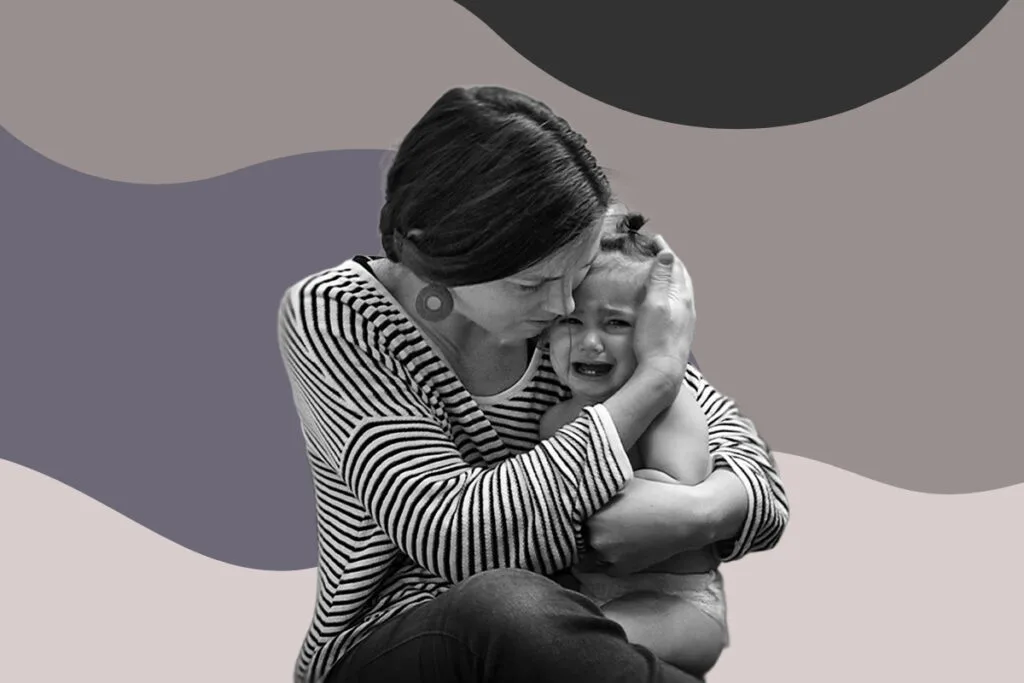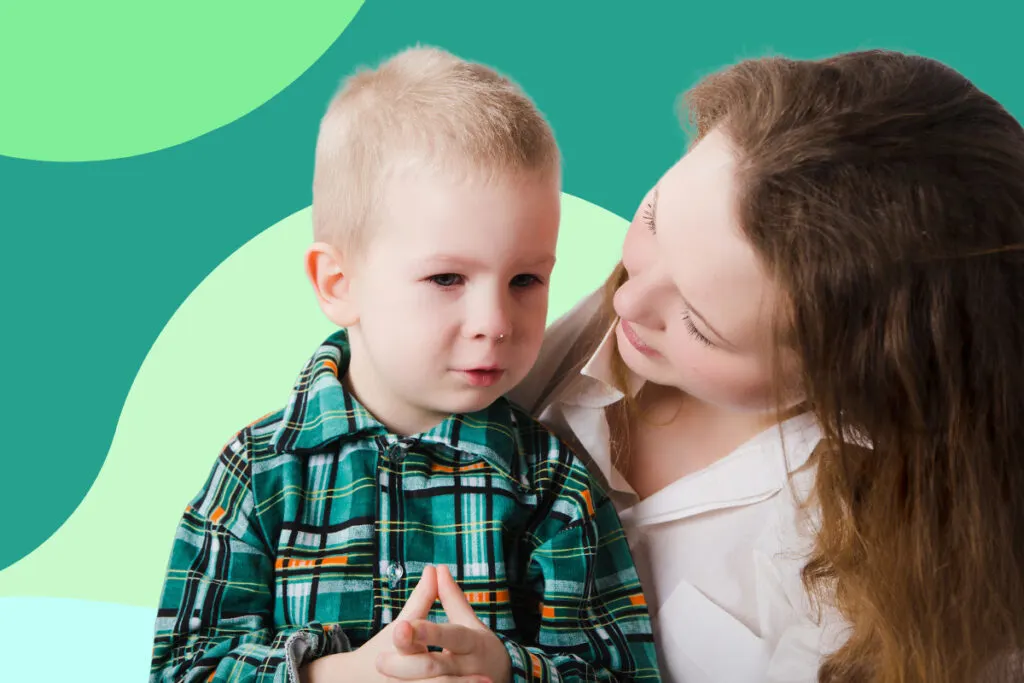Children in some cultures are taught they should be seen-and-not-heard. This implies “you don’t matter”.
What a horrible feeling that is.
All of us want to feel that we matter. We want to be heard and accepted.
Validating feelings doesn’t mean you agree with them. It means they are heard and understood.
When done correctly, the impact of validation on a child’s emotional development is tremendous.

TABLE OF CONTENTS
What is emotional validation
Emotional validation is the act of tuning in, acknowledging, and accepting another person’s feelings, even if they’re negative. It involves listening to others express their emotions without ignoring, dismissing, belittling, rejecting, or judging them even if you do not agree with their emotional response.
Validating a child involves assuring them that their feelings, thoughts, and internal experience are valid1.
It is one of the most valuable parenting and relationship skills.

Why is emotional validation important
Emotional validation is crucial to a child’s development.
Secure attachment
During early childhood, parents who validate form an emotional connection with their children.
When children are allowed to express their strong emotions, they develop a sense of security.
They feel comfortable being open and honest with their attachment figure.
They also learn how to develop self-compassion which is associated with secure attachment 2.
Emotional regulation
Validated children learn to understand their emotional experiences and regulate their feelings with the help of their parents.
Emotion dismissal, on the other hand, may contribute to difficulties in emotion regulation 3.
Mental health
Children who receive emotional validation experience a boost in self-worth.
They develop a healthy sense of identity and tend to have better mental health.
Emotional invalidation in childhood may lead to the development of mental health conditions such as borderline personality disorder (BPD)4 or posttraumatic stress disorder (PTSD)5.

How to validate a child’s feelings
Validation can be used with a child who is showing negative emotions. It’s also one of the most effective ways to calm down a child in a tantrum.
However, effective validation can be tricky to carry out. When parents validate, they must take care not to fall into old habits.
Here are the three steps to validate a child’s negative feelings without agreeing.
Step 1 – Notice
Don’t ignore or pretend you don’t see it when a child is upset. Rather, confirm that you notice their negative emotions.
“I saw you fall when you tried to catch up to me.”
“I heard that you just lost the game.”
“Your sister ignored you when you tried to talk to her.”
Step 2 – Acknowledge
Acknowledge your child’s feelings and identify where they come from.
If the child is able to speak, use empathic listening (or active listening) to hear them out. If the child is too young or too upset, teach them to name their feelings.
“You must be very upset because I didn’t wait for you.”
“That feels very unfair because you played so well in the game.”
“It feels so hurtful. It’s like she didn’t care about you.”
Step 3 – Witness
Here is the crucial step where many parents make a mistake.
While many parents get the concept of validation, they may still fail to calm an upset child because they do not follow this step.
Many parents will try to explain why the child shouldn’t feel that way or give unsolicited advice on how they should feel or do instead.
There is an implicit sense of invalidation here that the child had the wrong feelings. This undoes everything in steps 1 and 2.
At this point, you really don’t need to say anything else. Simply stay with the child and express empathy and attunement with your facial expression or body language.
If you want to teach them to “think differently” or see things from a different perspective, do it later. Now is not the right time for that.
This is a time for your child to understand their feelings, accept them, and form an emotion regulation strategy, not a time for lectures.

33 examples of validating statements
- I can see why you are upset.
- That must be hard.
- How rude!
- That must be frustrating
- That is so sad.
- What a yucky day for you!
- Tell me what happened.
- It makes sense that you feel upset.
- It means a lot to you.
- I know it must really hurt. Do you want a hug?
- I would feel bad in that situation, too.
- What a horrible thing they said!
- You wanted to help but didn’t realize they didn’t want it.
- I’d feel that way, too.
- What you’re feeling is completely normal.
- Your feelings are valid.
- There are no wrong feelings.
- You don’t need their permission to feel.
- I’m sorry that I hurt you.
- It’s normal to feel that way.
- That was a big fall. I’m so glad you’re ok.
- Thank you for sharing your feelings with me.
- I’m so sorry.
- It makes sense that you feel attacked.
- I agree that was wrong of them.
- I can’t believe they did that either.
- That feels so wrong. I’m glad you stuck with your decision.
- You were so brave.
- You persevered.
- I noticed you were very calm despite all the chaos.
- It is ok to cry. Don’t feel bad about it.
- It’s not wrong to feel that way.
- Ouch, that looks like it hurts.
Also See: What To Say When Someone’s Parent Is Sick
References
- 1.Krause ED, Mendelson T, Lynch TR. Childhood emotional invalidation and adult psychological distress: the mediating role of emotional inhibition. Child Abuse & Neglect. Published online February 2003:199-213. doi:10.1016/s0145-2134(02)00536-7
- 2.Neff KD, McGehee P. Self-compassion and Psychological Resilience Among Adolescents and Young Adults. Self and Identity. Published online July 2010:225-240. doi:10.1080/15298860902979307
- 3.McMain S, Korman L, Dimeff L. Dialectical behavior therapy and the treatment of emotion dysregulation. J Clin Psychol. 2001;57(2):183-196. doi:4.Cole PM, Llera SJ, Pemberton CK. Emotional instability, poor emotional awareness, and the development of borderline personality. Dev Psychopathol. Published online October 14, 2009:1293-1310. doi:10.1017/s09545794099901625.Westphal M, Leahy RL, Pala AN, Wupperman P. Self-compassion and emotional invalidation mediate the effects of parental indifference on psychopathology. Psychiatry Research. Published online August 2016:186-191. doi:10.1016/j.psychres.2016.05.040
